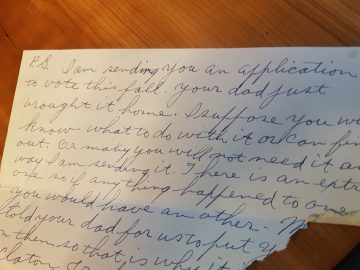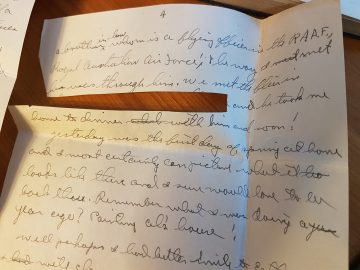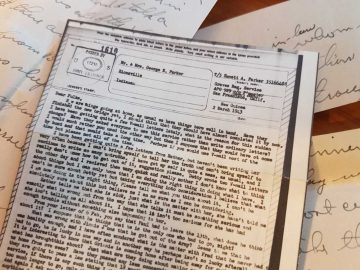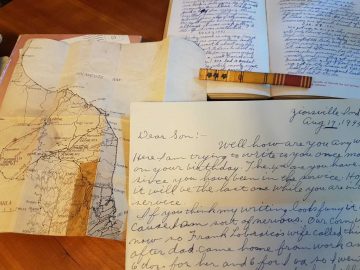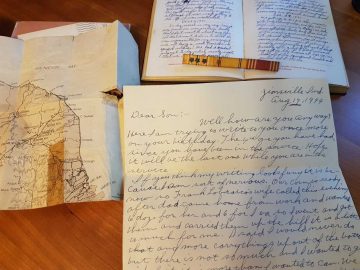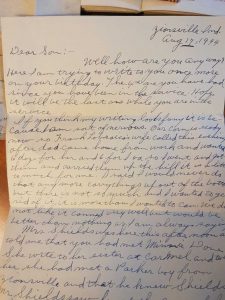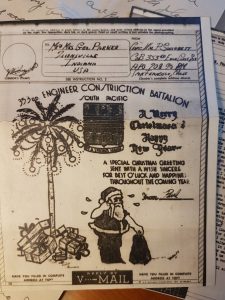Show and Tell: Selections from our Personal Archives and Libraries
How we remember, and what we hold dear, differs from person to person. All of us have personal archives we keep to preserve memories that are precious, that document our families, our histories and record important events. It could be a simple piece of ephemera we love and cannot part with (a ticket stub from our first concert, for example), or photographs of ancestors that offer clues to our origins, or anything we have set aside and saved for a myriad reasons. Similarly, our personal libraries hold volumes that have emotional value to us, not just for the words contained in it, but as a reflection of a time in our lives, we found them particularly relevant. This could be the first book of poetry that made us fall in love with verse, or the dog-eared copy of a classic novel that led us to our current passion for libraries and library work. This blog series explores selections from the personal libraries and archives of members of the Rare Books and Special Collections team, and other colleagues from UBC Library and beyond. We hope our stories will help you reflect on what is meaningful at this time in your, and in our, collective histories.
— Krisztina Laszlo, Archivist
Susan Parker, University Librarian
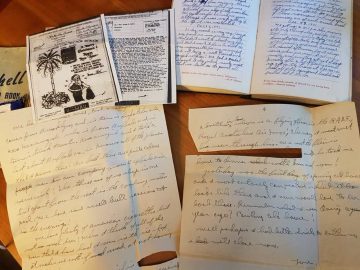
V-mail form and censored letters
When I was growing up, I knew my father had been in the U.S. Army in Papua New Guinea during World War II. Like many veterans of that war, he seldom spoke about it, and usually it was only when he was indisposed with recurring symptoms of malaria, which he contracted there. He died suddenly, a few months after I graduated from college, and only then did I learn more from my mother. She told me that Dad was in the Army Graves Registration Service. His team retrieved Allied soldiers’ remains, identified them, and buried them there in the jungle until they could be sent home.
What’s included here are letters to my dad, some from his father and some from his mother, from summer, 1944. There are also letters home from my dad to them, mostly from 1942 and 1943. Some of my dad’s letters are hand written, including those with portions of them cut out by censors. Most are typed on Army forms called V-mail.
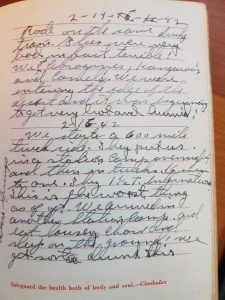
Emmett Parker diary
There are two diaries here, one provided to soldiers by the Army and one is just a blank notebook. My dad enlisted on December 8, 1941, the day after Pearl Harbor. His diaries detail his deployment with the 808th Engineer Aviation Battalion from San Francisco by boat to Melbourne, Australia, and by train and truck through the Australian desert to Darwin, and from there, to Port Moresby, New Guinea. He spent most of the war on the opposite side of that island, at Camp Pine Creek, near the village of Buna.
The Engineers were sent to New Guinea to build desperately needed airstrips for Allied bombers. A small and heavily folded map from the time is included; my dad must have kept that to show at home after the war. One of his diaries details his survival through the Battle of Buna, a grisly and costly fight for both sides, lasting from July 1942 until January 1943, when U.S. and Australian air and land troops finally defeated the Japanese occupation of New Guinea.
You’ll also see here two uniform patches. These designate the Second Service Command. I don’t know much detailed information about these decorations or Dad’s rank (Corporal); his service records were among the thousands that were destroyed in the NARA Military Archives fire in 1973. I can identify three medals designated by the ribbons here. On the left is the Defense Service Medal with three stars, one for each year of combat deployment. In the middle the Asiatic-Pacific Campaign medal designates his South Pacific service, and the red ribbon on the right is a Good Conduct medal, also reflecting three years of active service or more.
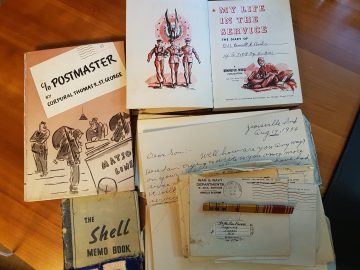
Uniform patch (right) and “c/o Postmaster” book (left)
There’s also a book, c/o Postmaster, which my dad relished as a reminiscence of another soldier’s Army experiences while serving in Australia.
These letters, correspondence between my dad and his parents, are a link to my grandfather, who I never knew, and a window into my grandparents’ life on the home front in rural Zionsville, Indiana with my dad’s 15-year-old brother and their newly-married older sister.
This little collection is a vivid connection to my dad’s World War II experiences, giving me a small window into what he lived through and the gruesome job he performed. I had the good fortune to travel to Australia last year. Although I did not get to New Guinea or to Darwin, my dad’s favorite Australian town to visit while on liberty, it was meaningful to me to be there. I spent several days in Melbourne last summer with thoughts of him and the war.
